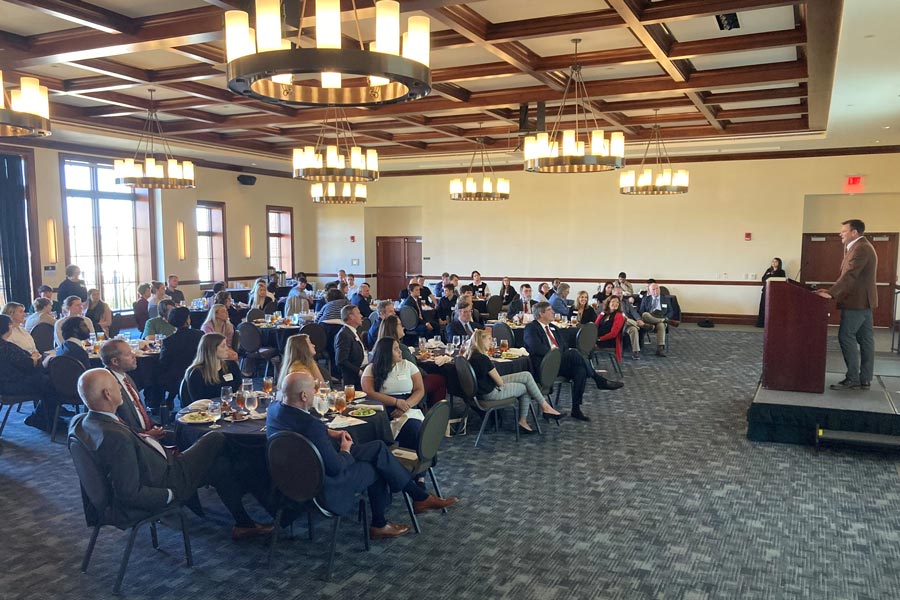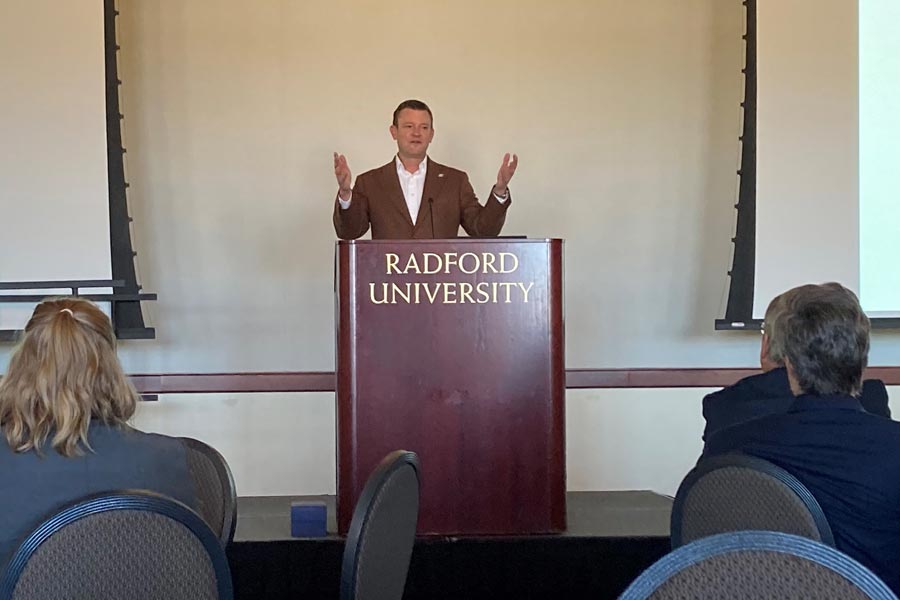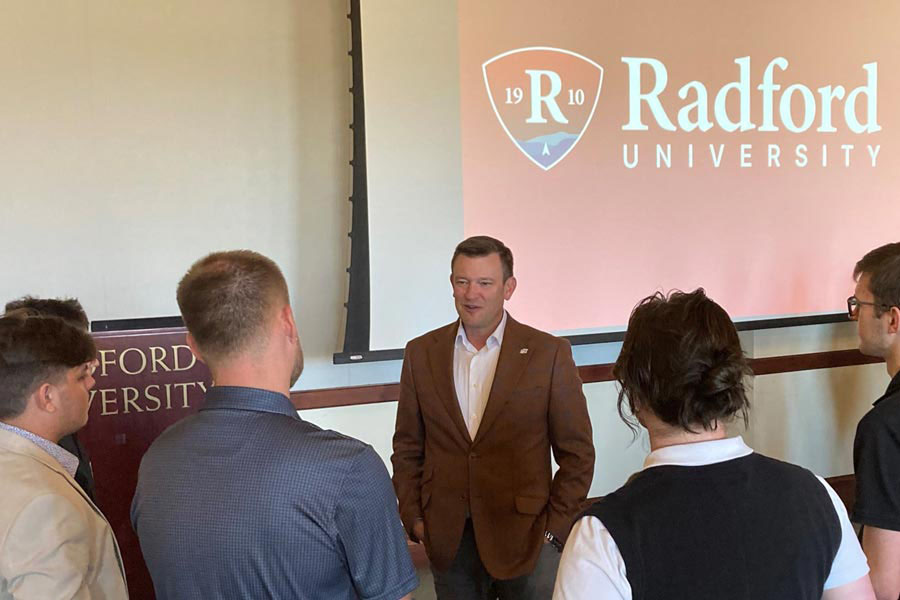Communications technology CEO Jason Adkins headlines Truist lecture series
by Neil Harvey
November 11, 2024
Last year, Jason Adkins, MBA ’98, had what could be called a pretty good summer, to put it mildly.
In 2023, he was the longtime CEO of Unite Private Networks (UPN), a company which, that July, was acquired by Cox Communications for a 10-figure sum.

Fast forward to present day: On Oct. 24, he was the featured speaker for Radford University’s Truist Global Capitalism Lecture Series. At a luncheon during his visit to campus, Adkins discussed the road that led to that mammoth sale, which for him began when he joined UPN in 2012 as part of a management team backed by private equity and investors.
“We took [UPN] from $11 million revenue to $200 million revenue,” he said of his tenure there. “We took it from 30 employees to 400 employees.
“We sold that company for $2.2 billion to Cox Communications, which we felt was a really good deal for them,” Adkins told an audience of Radford students, faculty, staff and administrators.
At the time of the sale, however, one person in Adkins’ orbit – someone very close to home – expressed concern.
“My grandmother was extremely nervous about it,” he recalled. “She was like, ‘Look, if you sell the company, you won’t have a job.’ And I was like, ‘Yes, but that means we were successful, and it means we earned money, and it means we got money to the employees, and if you’re successful in a private equity situation, there will always be other private equity companies and firms that come looking to hire you.”

That prediction proved correct. In March, Adkins was named CEO of Bluebird Network, a Missouri-based company that provides fiber-optic internet and data transport across thousands of Midwest miles, and he now hopes to repeat at Bluebird the same success he had with UPN.
“Private equity has gotten a little bit of a bad rap,” Adkins said in his lecture as he projected a movie still from the Oscar-winning 1987 drama “Wall Street,” an image of Gordon Gekko, the antagonist of that film, known for his rallying cry, “Greed is good.”
“A lot of times when people think of private equity, they think of the Wall Street raiders,” Adkins explained. “They think we’re going to come in, buy a company and tear it apart and be very ruthless, and we’re going to make a lot of money and to hell with the employees.”
A better example, he offered, is that of professional investors providing capital to a company in exchange for owning it or for equity’s sake.
“The real goal is to improve the performance of that company, typically in three to five years. Some funds have a seven-year horizon. Some even have a 10-year horizon and sell it for a profit,” he said. “There’s always bad actors. There are some people that cannot do it correctly, but when done correctly, there’s probably no better alignment with goals.”
After his talk, he fielded questions from the audience, addressing issues as varied as the impact of artificial intelligence on corporate decision-making, the challenges that come from market disrupters and the growing trend of working remotely.
While he acknowledged that it’s never been easier to work from home – Adkins has spent a quarter-century in the business of communications technology, after all – he told students that newcomers to business owe it to themselves to remain flexible, to make their presence known and to draw exposure from office time.

“You’ve got to be able to work with others,” he told them, adding, “Let's be honest. If there are three people in an office that are doing a good job that have the same credentials, and you're the fourth person doing a good job, but they never see you? Maybe that shouldn't make an impact, but I think it does.”
Further, he encouraged students to take advantage of internship opportunities and said they can gain valuable experiences from them, even if it comes through a company or a field they don’t immediately think they’re interested in.
Much of that can be overcome through nurturing curiosity, he said, a quality he looks for in prospective employees: “When I’m interviewing someone, and I’m telling them about my business, are they leaning in? Or are they kind of looking off in space? Are they asking questions once they’re hired?”
He also advised students to make the most of their education before entering the business world.
“Radford was a big part of getting me where I’m at today,” he said. “I was just talking to a good friend of mine that graduated in ’91. He said the thing about Radford is it provides excellent educational opportunities, and it’s always got a very scrappy student base, in a good way. We win. We figure out ways to get to the corner office.
“There’s nothing you can’t do from the seat you’re in right now.”